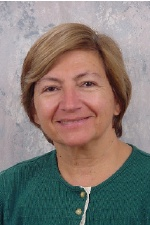ICAART 2016
Plenary Opening Panel Session
Date: Wednesday February 24th, 2016
Time: 09:15 – 10:30
Immediately After Opening Session
ADVANTAGES AND DRAWBACKS OF BIG DATA
Chair and Moderator:
Jaap van den Herik, Leiden University, Netherlands
Panelists:
Cristiano Castelfranchi, Institute of Cognitive Sciences and Technologies -National Research Council, Italy
Tom Heskes, Radboud University Nijmegen, Netherlands
Jérôme Lang, Université Paris-Dauphine, France
Eric Postma, Tilburg University, Netherlands
Jaime Sichman, University of São Paulo, Brazil
Katia Sycara, Carnegie Mellon University, United States
Gender, Agents & Artificial Intelligence
½ Day Panel held on 26 February 2016 at ICAART 2016
Is gender a salient issue in the development of intelligent agents and does AI need a sex?
A full robot Turing test is conducted in the 2014 movie Ex Machina
1 between a male human and an artificial intelligence "housed in a beautiful female robot" not born of god or woman. The panel seeks to determine whether there are instances when gender-in-AI could be appropriate?
1Ex Machina: Female AI and male human Turing Test Judge (Universal Pictures)

Format of the panel:
- 09h45 – 11h15: Each Panel speaker makes a short presentation
- 11h15 – 11h30: Coffee break
- 11h30 – 12h20: Panel + Audience discussion
Questions to the Panel:
a. Do you personally feel some virtual agents/robots should have a gender?
b. If so, in which type of agents/robots? For example, in carer/companion robots interacting with the sick or elderly in their own home.
c. If you feel gender-neutral is best, why?
d. If you develop agents and AIs do you give them male or female attributes, if so why?
e. Do you feel the lines between gender (trans/inter; etc.) and sex (male/female) are too messy to complicate in agent/robot development?
Panellists

|
Professor Kevin Warwick
Deputy Vice-Chancellor (Research) at Coventry University
United Kingdom
http://www.kevinwarwick.com/
|
|
|
|
Brief Bio
Kevin Warwick's research areas are in artificial intelligence, control, robotics and biomedical engineering. Kevin instigated a series of pioneering experiments involving the neuro-surgical implantation of a device (Utah Array/BrainGate) into the median nerves of his left arm in order to link his nervous system directly to a computer to assess the latest technology for use with the disabled. He is the author or co-author of more than 600 research papers and has written or edited 27 books.
|

|
Professor Barbara Henry
Scuola Superiore Sant'Anna, Pisa
Italy
http://www.sssup.it/barbara.henry
|
|
|
|
Brief Bio
Barbara is the author of a number of publications relevant to the theme of this panel:
- Gender Sensitivity, Asymmetries, 'Acroamatic Turn'. A Renewed Approach to Some 'Gendered' Methodologies, Journal of Basic And Applied Research International; N. 10; 219:226 (2015); - The Golem to cyborgs, Cosmopolis; No. 2; (2013),- Human Enhancement and the Post-Human; the Converging and Diverging Pathways of Human, Hybrid and Artificial Anthropoids,Humana.Mente; No. 26; 59:77 (2014).
|

|
Professor Katia Sycara
Robotics Institute, Carnegie Mellon University
USA
http://www.ri.cmu.edu/person.html?person_id=304
|
|
|
|
Brief Bio
Katia Sycara's research interests are in multi-agent, multi robot systems and HRI. Katia has been developing a formal framework that models human-robot interaction- HRI from the perspective of computational complexity of the human's control task and needed interaction with the robots. This is in order to allow a systematic study of human interaction, adjustable autonomy, human-robot teaming and control with multiple robots. The framework has enabled her team to develop effective algorithms for scheduling operator attention, and also discover a new concept, Neglect Benevolence: it may be beneficial for a robotic swarm to be neglected for some amount of time before the human operator provides the next input, as mission goals change. Additionally, Katia is working towards the development of cognitively-based analytical models of the human operator. Katia is a Fellow of the IEEE, Fellow of the AAAI and has published more than 600 papers. Her research interests are in multi-agent and multi robot systems and HRI.
|

|
Fred Roberts
Artificial Solutions, Germany

|
|
|
Brief Bio
Fred Roberts is an R&D Engineer at Artificial Solutions with 15 years of experience developing commercial virtual assistants and conversational agents. He is also the "father" of the multi-award winning conversational agent Elbot that has interacted with hundreds of thousands of people around the world.
Artificial Solutions provides the unique Teneo platform, a platform for the development and analysis of Natural Language Interaction (NLI) solutions, that allows people to interact in free-form natural language with apps, mobiles and many different devices using speech, text, haptics or gesture. Their Teneo platform has been used to build hundreds of conversational systems in more than 20 languages from web-based Intelligent Virtual Assistants to the mobile personal assistant Indigo.
|